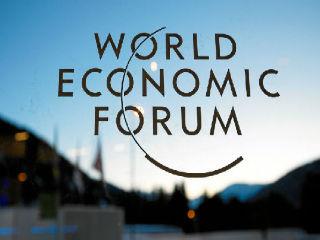Whatever the decision of the European Central Bank (ECB) on quantitative easing, she said that European leaders must not be diverted from continuing with meaningful structural reforms.
“Time is of the essence,” Angela Merkel said.

Germany’s Chancellor, Angela Merkel, called for urgent fiscal reform in Europe at a special session of the 45th World Economic Forum Annual Meeting.
by
Fon
Mathuros* **
- Whatever
the decision of the European Central Bank, Europe requires urgent fiscal and
structural reforms
- The
European single market needs to become less regulated and more open
- Germany’s
actions are oriented towards keeping Greece in the Eurozone
Davos-Klosters,
Switzerland, 22 January 2015 – Germany’s Chancellor, Angela Merkel, called for
urgent fiscal reform in Europe at a special session of the 45th World Economic
Forum Annual Meeting.
Whatever the decision of the European Central Bank (ECB)
on quantitative easing, she said that European leaders must not be diverted
from continuing with meaningful structural reforms.
“Time is of
the essence,” she said. “Every day we delay is a lost day. We need to promote
growth and create long-term jobs.”
Merkel was speaking at the Annual Meeting in
Davos-Klosters, Switzerland, from 21 to 24 January 2015. Europe has
an opportunity to emerge stronger out of the crisis, the Chancellor said.
While
acknowledging progress by countries such as Italy, Spain and France, she
stressed that Europe is not out of the woods yet.
“The European single market
needs to become less regulated and more open.”
The
growth-austerity argument is a false dichotomy, she added.
“Germany has shown
that growth-oriented fiscal policy is possible,” she said.
Pointing to internal
demographic challenges, Merkel emphasized the need to manage debt levels to
ensure that onerous burdens are not passed on to the next generation as 6
million German workers enter retirement age.
Merkel
called on other European leaders to begin fiscal consolidation. She pointed to
historic low interest rates and questioned how countries with large fiscal
deficits will fare if rates rise.
“Now is the time to get our houses in order,”
she said. The
Chancellor added that Europe needs to grasp several immediate opportunities.
The first is for more open trade via the Transatlantic Free Trade Agreements.
The second is for Europe to become a standard-setter globally in digitization.
On Greece,
she emphasized that Germany’s actions have always been oriented towards keeping
Greece in the Eurozone.
“We have to both show solidarity with Greece just as
they show readiness to shoulder their responsibilities.”
Merkel
concluded by affirming Germany’s position in Europe. “Germany will remain a
stable anchor in Europe,” she said.
The
Co-Chairs of the Annual Meeting 2015 are:
Hari S. Bhartia, Co-Chairman and
Founder, Jubilant Bhartia Group, India;
Winnie Byanyima, Executive Director,
Oxfam International, United Kingdom;
Katherine Garrett-Cox, Chief Executive
Officer and Chief Investment Officer, Alliance Trust, United Kingdom; Young
Global Leader Alumnus;
Jim Yong Kim, President, The World Bank, Washington DC;
Eric Schmidt, Executive Chairman, Google, USA; and
Roberto Egydio Setubal,
Chief Executive Officer and Vice-Chairman of the Board of Directors, Itaú
Unibanco, Brazil.
*
Head of
Media, Public Engagement, Tel.: +41 (0)79 201 0211, Email: [email protected]



 By: N. Peter Kramer
By: N. Peter Kramer
